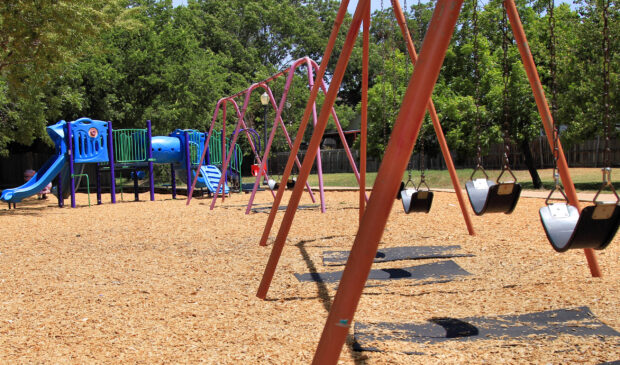Study calls for formalizing partnership between parks department and foundation
Tuesday, June 27, 2023 by
Chad Swiatecki Local parks advocates want the city and the Austin Parks Foundation nonprofit group to come to a formal agreement spelling out the roles and responsibilities between the two entities, with the hope of better addressing equity issues across the city’s massive span of parks facilities.
That recommendation was one of the main findings of a recent study by Urban Land Institute Austin, which took part in a national program to improve equity concerns related to parkland in five major cities.
The report is scheduled for release this week and looks specifically at the parks foundation’s Adopt-A-Park program. Other recommendations include improving strategic community outreach to better communicate with residents near all parks properties, facilitating volunteer work to make it easier for those who want to help to get involved, and creating a new strategy to help parks in historically underinvested communities.
The longstanding partnership between the Parks and Recreation Department and Austin Parks Foundation was seen as well-intended. However, differing priorities, meeting schedules, roles and communication processes were seen as a hindrance to increased involvement for those interested in adopting or otherwise volunteering to improve a park.
During a recent panel discussion organized for the Urban Land Institute’s membership of developers and real estate professionals, those involved with the study discussed the ongoing challenges to increasing involvement and community investment in all park spaces. Christine Chute Canul, partnership manager for the Parks and Recreation Department, said codifying the relationship with the parks foundation would force the city to be more explicit in spelling out its own processes related to parks outreach.
“From a staff perspective, we were seeing how we could remove some barriers that weren’t formalized and were not within the policy and not in our procedures, where we were just kind of working around what existed. And if a staff member leaves or if new people come on, it’s hard to then make that consistent and really formalize that change and integrate it into your program,” she said. “We understood that this needed to have a formalized change to the program, not just how we show up in communities, but also how we really manage the program as a whole.”
Laura Cortez, CEO and founder of Cortez Consulting, said community feedback showed a perception that the parks department and the parks foundation act as a barrier or a significant process step for those looking to secure grants or other resources for parks in their neighborhood.
“We talked quite a bit about not only helping to bring (underinvestment) to attention, but then looking at how … we give ownership back to those community members who are living there,” she said. “In some areas in Northeast Austin, community members for a very long time have been asking for investments in their park, and those things are happening. … If we are going to invest in them, how are we giving the voices of those community members who live there space? You don’t just come in and do your work, but actually find park adopters who’ve lived there for some time and find ways that you can mobilize them and empower them.”
Barry Rivera, senior programs manager for Austin Parks Foundation, said those who want to improve the parks in their neighborhood can typically do so easily with small projects that are easy to plan and coordinate.
“As much as you think you know what’s best for the park, you just can’t go out there and start hacking down trees because there are these processes, and there are limitations,” he said. “Yeah, there’s lots to be done, but we aren’t expecting you to try to tackle all of that. If you can just do one thing, that’s a great start, because that’s one thing that wouldn’t happen without you.”
Clearly communicating timelines also can keep people looking to help from becoming discouraged, Rivera added.
Photo by Larry D. Moore, CC BY 4.0, via Wikimedia Commons.
The Austin Monitor’s work is made possible by donations from the community. Though our reporting covers donors from time to time, we are careful to keep business and editorial efforts separate while maintaining transparency. A complete list of donors is available here, and our code of ethics is explained here.
You're a community leader
And we’re honored you look to us for serious, in-depth news. You know a strong community needs local and dedicated watchdog reporting. We’re here for you and that won’t change. Now will you take the powerful next step and support our nonprofit news organization?






